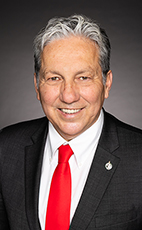- May/31/24 12:11:47 p.m.
- Watch
28 words
- Hear!
- Rabble!
- May/31/24 12:12:19 p.m.
- Watch
31 words
- Hear!
- Rabble!
- May/31/24 12:13:15 p.m.
- Watch
83 words
- Hear!
- Rabble!
- May/31/24 12:14:02 p.m.
- Watch
- Re: Bill C-5 Bill C-325 Bill C-21
144 words
- C-21, An Act to amend certain Acts and to make certain consequential amendments (firearms)
- C-325, An Act to amend the Criminal Code and the Corrections and conditional Release Act (conditions of release and conditional sentences)
- C-5, An Act to amend the Judges Act and the Criminal Code
- C-75, An Act to amend the Criminal Code, the Youth Criminal Justice Act and other Acts and to make consequential amendments to other Acts
- Petitions
- Petition
- Petitioners
- Brunswick
- Hear!
- Rabble!
- May/31/24 12:15:35 p.m.
- Watch
140 words
- Hear!
- Rabble!
- May/31/24 12:15:38 p.m.
- Watch
125 words
- Hear!
- Rabble!
- May/31/24 12:17:11 p.m.
- Watch
90 words
- Hear!
- Rabble!
- May/31/24 12:17:31 p.m.
- Watch
32 words
- Hear!
- Rabble!
- May/31/24 12:17:50 p.m.
- Watch
7 words
- Hear!
- Rabble!
- May/31/24 12:18:04 p.m.
- Watch
18 words
- Hear!
- Rabble!
- May/31/24 12:18:04 p.m.
- Watch
Question No. 2546—
Questioner: Gord Johns
Question No. 2547—
Questioner: Alistair MacGregor
Question No. 2549—
Questioner: Sameer Zuberi
Question No. 2550—
Questioner: Sameer Zuberi
Question No. 2551—
Questioner: Tim Uppal
Question No. 2552—
Questioner: John Brassard
Question No. 2553—
Questioner: Laila Goodridge
Question No. 2554—
Questioner: Colin Carrie
Question No. 2555—
Questioner: Lindsay Mathyssen
Question No. 2556—
Questioner: Lindsay Mathyssen
Question No. 2557—
Questioner: Lindsay Mathyssen
1528 words
- Hear!
- Rabble!
- May/31/24 12:18:11 p.m.
- Watch
7 words
- Hear!
- Rabble!
- May/31/24 12:18:34 p.m.
- Watch
97 words
- Hear!
- Rabble!
- May/31/24 12:19:16 p.m.
- Watch
73 words
- Hear!
- Rabble!
- May/31/24 12:19:56 p.m.
- Watch
75 words
- Hear!
- Rabble!
- May/31/24 12:20:20 p.m.
- Watch
53 words
- Hear!
- Rabble!
- May/31/24 12:20:44 p.m.
- Watch
93 words
- Hear!
- Rabble!
- May/31/24 12:21:32 p.m.
- Watch
74 words
- Hear!
- Rabble!
- May/31/24 12:22:07 p.m.
- Watch
- Re: Bill C-65
2906 words
- Hear!
- Rabble!
- May/31/24 12:40:24 p.m.
- Watch
34 words
- Hear!
- Rabble!













